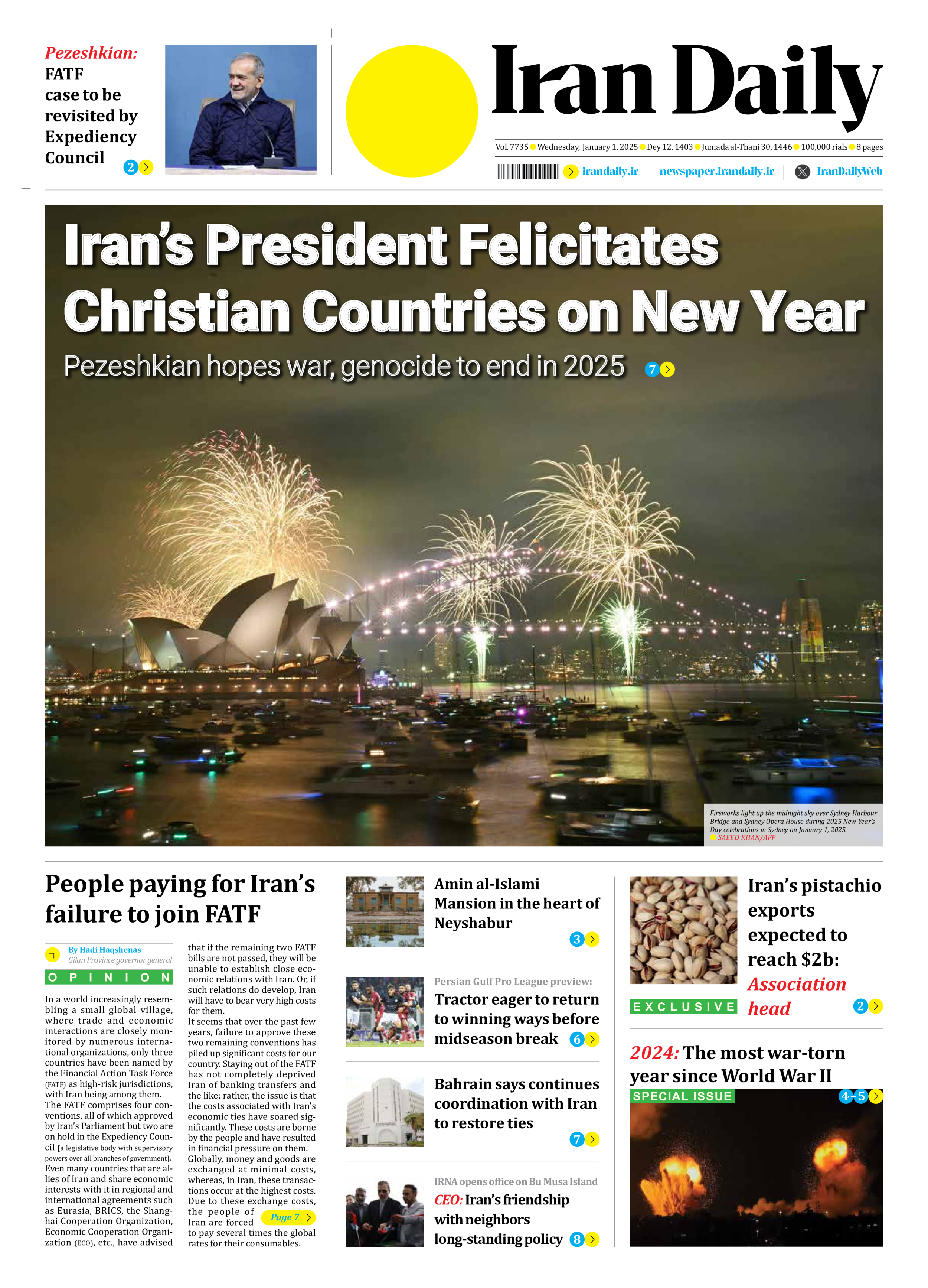
People paying for Iran’s failure to join FATF
By Hadi Haqshenas
Gilan Province governor general
In a world increasingly resembling a small global village, where trade and economic interactions are closely monitored by numerous international organizations, only three countries have been named by the Financial Action Task Force (FATF) as high-risk jurisdictions, with Iran being among them.
The FATF comprises four conventions, all of which approved by Iran’s Parliament but two are on hold in the Expediency Council [a legislative body with supervisory powers over all branches of government].
Even many countries that are allies of Iran and share economic interests with it in regional and international agreements such as Eurasia, BRICS, the Shanghai Cooperation Organization, Economic Cooperation Organization (ECO), etc., have advised that if the remaining two FATF bills are not passed, they will be unable to establish close economic relations with Iran. Or, if such relations do develop, Iran will have to bear very high costs for them.
It seems that over the past few years, failure to approve these two remaining conventions has piled up significant costs for our country. Staying out of the FATF has not completely deprived Iran of banking transfers and the like; rather, the issue is that the costs associated with Iran’s economic ties have soared significantly. These costs are borne by the people and have resulted in financial pressure on them.
Globally, money and goods are exchanged at minimal costs, whereas, in Iran, these transactions occur at the highest costs. Due to these exchange costs, the people of Iran are forced to pay several times the global rates for their consumables.
Page 7







